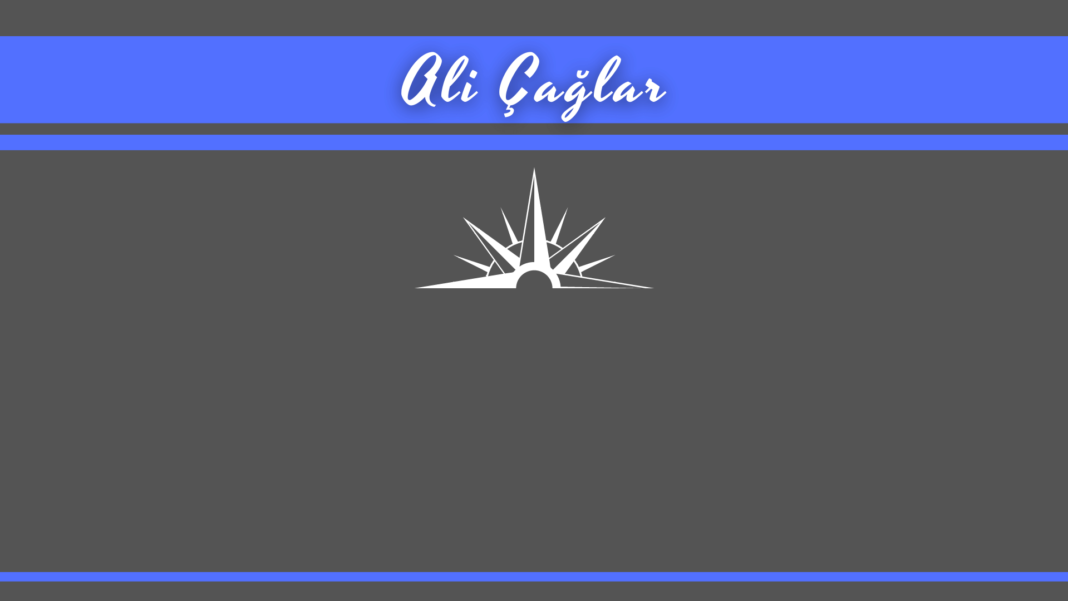Have you heard of the film The Siege of Jadotville?. In the film, which is about real events in Africa in the 1960s, Irish United Nations soldiers who have never seen war before are sent to protect the town of “Jadotville” in Congo. But due to political mistakes and agreements signed behind secret doors, Irish soldiers find themselves in the middle of a great war. In spite of the headquarters and politicians who sacrificed them, 150 soldiers have resisted for days against the separatist local forces that are many times stronger.
In fact, the company commander, who foresees what will happen and warns his superiors, cannot convince anybody. He painfully learns the fact that the politicians and the headquarters, which he did not want to believe at first, do not care about the life of the soldier. The following dialogue takes place between the commander of the French mercenaries serving the mining companies in the region and the Irish company commander, the leading character:
French officer: The area where your unit is stationed is very bad. Few soldiers. Did you make a plan?
Irish officer: My job is to plan. But when the first bullet fired, the plans fall apart, you get acquainted with the realities of the battlefield!
The “2015-2016 Urban Operations”, known to the public as “Hendek Operations”, were carried out against the PKK and the PKK-affiliated city structure, YPS, in many settlements, especially in Diyarbakır, Nusaybin, Şırnak and Cizre. The officers who participated in these operations also experienced the paradox of the Irish officer in the movie. They made plans according to the existing possibilities and capabilities, but the realities of the battlefield were different.
Yes, when the first bullet goes off, you find yourself in the narrow streets where Kurdish children once played freely.
Sometimes when you think you are safely moving towards the sniper shots you are exposed to in an armored vehicle, when in fact someone pulls you towards the pre-deployed explosive and you are crushed by the armored vehicles protecting you.
Sometimes, while you think that you caught PKK militants trapped inside a building, you witness that a soldier who was shot by another militant stationed in the next building, died within minutes in a nursery in that house.
You see Taybet (een elderly woman) shot in the middle of the street, your own mother comes to mind. You give an order, you say “remove the body”, but the shot comes, you cannot reach the body. Once again, you curse life and order, but there is nothing you can do.
Then you hear that a handful of peace volunteers supporting civilians trapped Cizre and Taybet, are on their way to Cizre by crossing Mount Cudi. This delegation finds a corpse on Mount Judi. The body of a young sergeant who was tortured and shot on the head. They talk amongst themselves, they come to the conclusion that he can be a soldier from his clothes.
Those who set out for Taybet’s body leave that body there and continue on their way. Sergeant Ferdi Polat from Antep had left his station to take an exam one autumn morning and was kidnapped in the city center of Şırnak and kept in basements for days. While Taybet was lying on the cold pavements of Silopi, Sergeant Ferdi suffered a similar fate at the foot of a cold rock in Mount Cudi.
I started to evaluate city operations from an officer’s perspective. The entry in my head for the article was very different, but I suddenly found myself in the middle of conflict and describing the deaths. So, how much can be done other than describing the deaths? Isn’t it the result of evaluations and analyzes that look at human life as statistical data, so much pain, so much grief!
If we want to question city operations in a healthy way, we need to consider the period known as the “Opening Process” from the beginning. However, this is the subject of a separate article. I can easily say that many of the soldiers were hopeful at the beginning of the initiative process, just like many citizens. Perhaps there would be a solution to the country’s bleeding wound.
I had this hope too. Unfortunately, the attempts soon turned out to be two separate monologues rather than a dialogue. We, who worked in the region, have seen that the parties do not have a problem such as a solution and act according to their secret agenda.
The opening process meant nothing but the vote winning tricks. The ruling party was not sincere. The other side saw this and naturally implemented its own strategy. The AKP presented the opportunity it sought to the PKK, which needed to reduce the number of fronts for the developments in northern Syria, on a golden platter. Finally, the opening process is over. The next is known. They left a huge bundle of problems in the arms of the soldiers and citizens in the region.
In fact, even here, they interfered with the current operations with their dirty hands.
An example: In response to a reasonable and appropriate question of Şırnak Division Commander Abdullah Baysal, in a manner unbecoming of a statesman, of Turgut Aslan, Head of the Counter-Terrorism Department at the time, who came to the region for the pre-operations meeting; The day he said, “We did not come here to exchange ideas, Ankara made its plan, it is your duty to carry out”, there was no option left for the soldier.
Of course, it was impossible for officers and non-commissioned officers in the field like us to know the films and plans made in Ankara. But the world’s most difficult operations are conducted in city centres. TAF commando units receive training for operations in rural areas. Decades of experience has been accumulated in this field. Even the equipment to be used in urban operations should be different. But Ankara had made its plan once! The unit commanders, who came to the cities where the operations would be held, were shocked by the scene they encountered and were thinking about how to carry out the task and how to send their personnel to their homes safely.
Another issue that I could not understand at that time was that the Police kept intelligence support at a minimum level. City operations were conducted with diffent kinds of troops. This means thousands of personnel who do not know the cities where the operation takes place. It is the security personnel responsible for the security of that city who know a city best, and the information they will share is very valuable. But the police intelligence agency, designed by the AKP with political concerns, kept silent during the operation and cut off the information flow.
When we look at the number of intelligence reports sent to the units at that time, it will be seen that the police intelligence reports were minimal. So what was the purpose? More deaths? The planning of more deaths, no matter which side? Examples can be multiplied.
On the other hand, it is useful to note here the following words of Selahattin Demirtaş in the court defense in order to better understand what happened at that time:
“We had just come out of the June 7 elections. The government could not be formed and preparations for early elections were being made. The peace process had actually come to an end, but there were hopes. We were discussing this as a party. There was news that the trench and the barricade were being dug. We understand that this is more than what happens in Cizre and Lice. I must say this sincerely; I thought that I was a politician who could establish warm relations with everyone in the party and had strong public relations. I admit that I was wrong about this. When the first news came, I didn’t know it was that much. I didn’t know it was like this, and I
couldn’t even guess. I say this as a self-criticism to my party members.”
What I want to emphasize is this: There is a straight logic in some of the Kurdish intellectuals and politicians who try to explain what happened. “Soldiers destroyed cities and passed.” However, if a period is to be questioned, that period must be considered from all angles. I think Demirtaş’s statements are also important in this respect. You can’t get anywhere with a simple discussion. Our compass should be universal human values. While determining the criteria for ensuring security and evaluating the events, we should look at the process with this perspective, that is, with universal human values.


